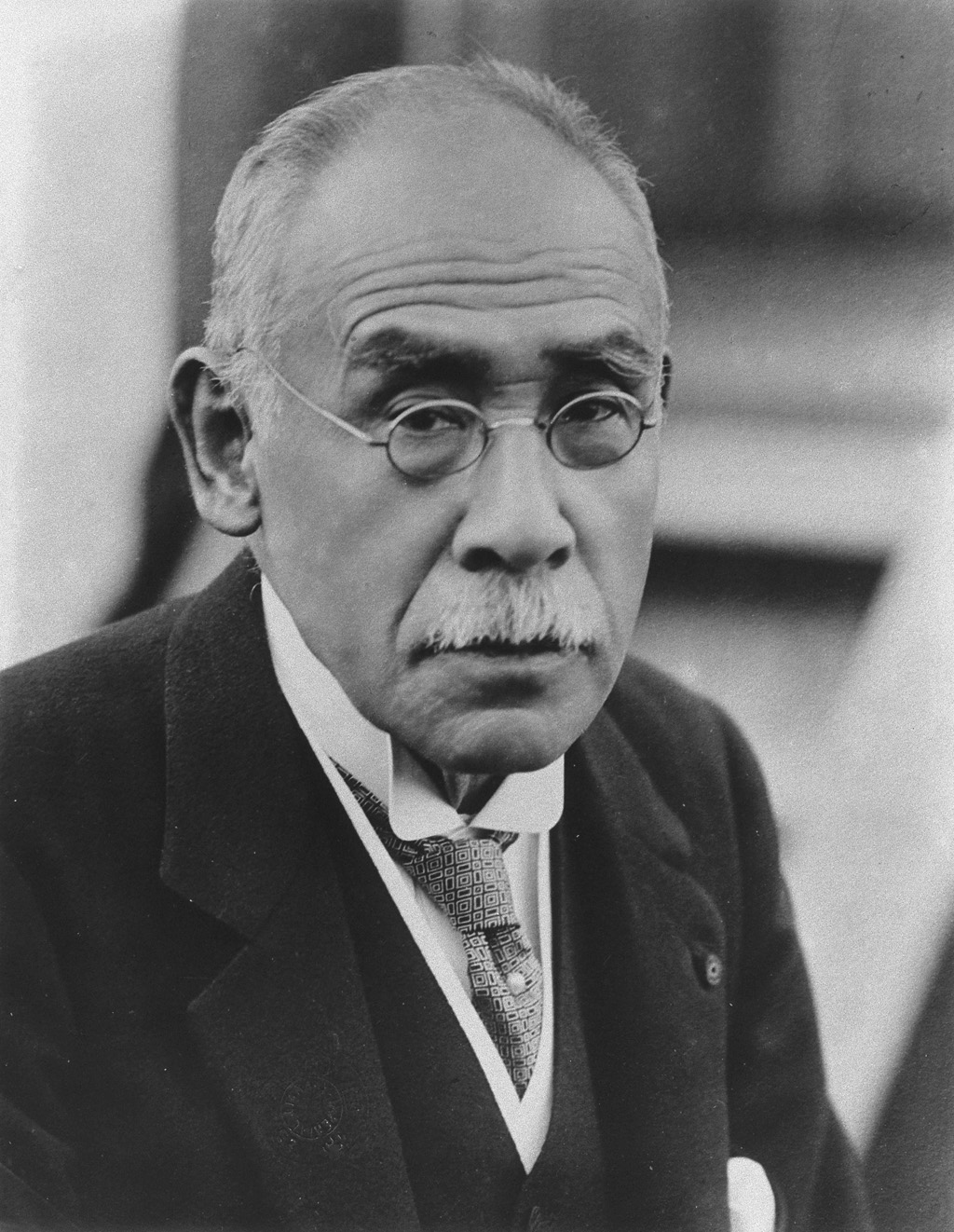 |
| Kato Takaaki |
Kato Takaaki (also called Kato Komei) began his career in the firm of Mitsubishi after graduation from Tokyo University. His father-in-law was Yataro Iwasaki, founder of Mitsubishi, and throughout his political career, Kato was associated with Mitsubishi and its interests.
Most of his career was spent in government service, beginning with a post in 1887 as private secretary to Okuma Shigenobu, the minister of foreign affairs. He advocated strong ties between Japan and Great Britain as a step on the road to making Japan a world power and was a strong supporter of the Japanese-British Exhibition of 1910.
Takaaki held numerous posts in the Japanese government over the course of his career, including director of the banking bureau in the finance ministry and member of the house of representatives and served three times as foreign minister. In 1913, while serving as foreign minister under Prime Minister Katsura Taro, he created the Kenseikai (Constitutional Party) through a reorganization of the Riekken Doshi-kai (Constitutional of Friends).
  |
He became chairman of the new party, which served as opposition to the Rikken Seiyukai (Friends of Constitutional Government Party), which was more conservative. In 1915, while serving as foreign minister, Kato played a major role in securing China's approval of the Twenty-one Demands, in which China granted Japan a number of industrial and strategic concessions.
Kato became prime minister in 1924, leading a coalition government. The following year, his party won a majority in the diet, and he instituted a series of democratic and other reforms. These reforms were partly influenced by his admiration for the British system of government, which he had observed while serving as ambassador to that country.
The most significant reform may have been the Universal Manhood Suffrage Law, which granted the right to vote to all Japanese men over age 25; this law increased the number of Japanese voters from 3 million to 13 million.
Kato also reduced the size of the government bureaucracy and reduced government expenditures on the armed forces. However, not all Kato's legislation was progressive: His government also passed the Peace Preservation Act, the purpose of which was to suppress subversive activities. Takaaki died while in office in 1926.